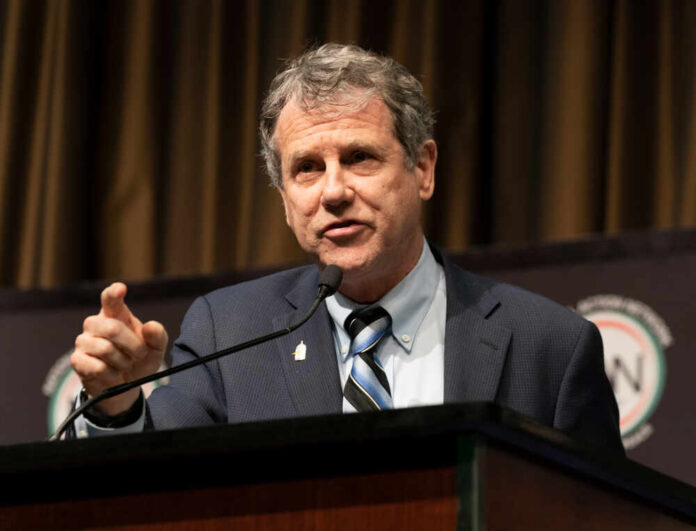
Congress is currently on its August recess, meaning lawmakers have headed back to their home districts. For a number of Democrats facing re-election next year, the break offers a last-ditch effort to fill their campaign coffers in preparation for a difficult race.
As President Joe Biden’s approval numbers circle the drain, many elected officials in his party are having a difficult time rallying voters to their cause. Furthermore, the layout of next year’s Senate races puts Democrats at a clear disadvantage.
There are only 10 incumbent GOP senators up for re-election next year, which is less than half of the number of Democrats campaigning for another term.
Of those Democrats, at least seven are expected to be vulnerable against their respective Republican opponents. When it comes to fundraising, however, early indicators suggest they are outperforming the GOP.
In a trio of states — Ohio, Montana, and West Virginia — that went to Donald Trump in 2020, the incumbent Democratic senators facing re-election have socked away more campaign cash than at the same point in prior election seasons. The Republicans hoping to unseat them have a considerable war chest from which to fund their campaigns.
Sen. Sherrod Brown (D-OH) is facing off against Republican candidate Bernie Moreno in a race that Cook Political Report is describing as a toss-up. The incumbent raised about $5 million in the second quarter of the year, more than doubling Moreno’s stake and bringing his total cash on hand to roughly $8.7 million. Another Republican in the race, state Sen. Matt Dolan, brought in $323,000 during the same three-month period.
Sen. John Tester (D-MT) chalked up a similar $5 million second-quarter haul, which is a record for the incumbent during a non-election year. Reports indicate his cash on hand has topped $10 million as he campaigns against former Navy SEAL Tim Sheehy.
West Virginia is a unique case study since Democratic Sen. Joe Manchin has not yet confirmed his candidacy for another term. In fact, he has frequently been the subject of speculation that he could mount a third-party White House bid next year.
Democrats fear that their chances of keeping the White House will go down if No Labels runs a third-party candidate, such as Joe Manchin, who could provide a vehicle for protest votes. | @johnfund https://t.co/mgbVQ5Xz76
— National Review (@NRO) July 31, 2023
Nevertheless, Manchin brought in about $1.3 million in campaign donations between April and June, bringing his total to more than $10 million. His second-quarter fundraising surpassed both major Republicans in the race, Gov. Jim Justice and U.S. Rep. Alex Mooney, who raised just under $935,000 and just over $411,000, respectively.
Similar narratives are playing out in Pennsylvania, Arizona, and Texas, with Democratic Senatorial Campaign Committee spokesperson Tommy Garcia attributing the fundraising success to the belief that voters “recognize the stakes of this election and the importance of stopping Republicans from implementing their toxic agenda.”
National Republican Senatorial Committee spokesperson Mike Berg sees things differently, asserting: “Democrat candidates have virtually unlimited campaign cash and dark money at their disposal every cycle. The problem for them is they are facing a brutal map and are running alongside an extremely unpopular president.”




























